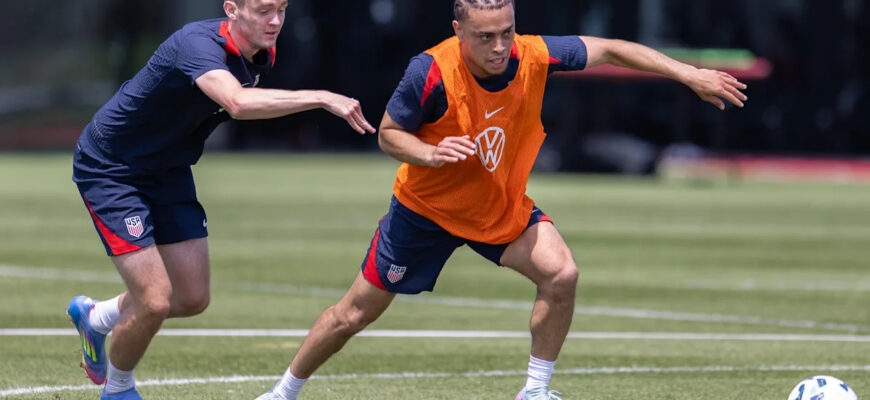The global football calendar rarely takes a full pause, even in the height of summer. The past week offered a compelling blend of outcomes, from a significant final defeat in North America to the rapid unfolding of a major European tournament. These events provide crucial insights into national team trajectories, highlighting areas of strength and revealing persistent challenges.
USMNT`s Gold Cup Final: Outplayed When It Mattered
The CONCACAF Gold Cup final saw the US Men`s National Team face familiar rivals Mexico, ultimately succumbing to a 2-1 defeat in Houston. This result, coupled with Mexico`s earlier Nations League triumph, marks a clear reassertion of El Tri`s dominance within the region`s competitive landscape. While the USMNT enjoyed a dream start with a goal just four minutes in, the subsequent 86 minutes painted a rather different picture. The statistics were telling: Mexico significantly outshot their opponents, completed more passes in attacking areas, and generally controlled the flow of the game. One notable point of contention for the US bench was a handball shout that went uncalled, a moment that arguably encapsulates the frustration but doesn`t wholly explain being statistically outplayed.
Analyzing the performance, it`s difficult to argue with assessments describing the display as `difficult to watch` and `terrible` in terms of technical execution post-early goal. The USMNT struggled to maintain possession, connect passes effectively, and ceded control to Mexico, who seemed far more comfortable dictating the tempo. Edson Alvarez`s winning goal in the 77th minute felt like an inevitable outcome of the sustained pressure Mexico applied.
However, any critique of this USMNT performance must be framed by a critical context: this was explicitly *not* the senior team`s full complement. Key figures like Christian Pulisic, Antonee Robinson, and Folarin Balogun were notable absentees. This summer was, by necessity, a chance for the coaching staff to evaluate the depth of the player pool ahead of the 2026 World Cup on home soil. On that front, there were indeed positives, with players like Diego Luna, Malik Tillman, and Matt Freese demonstrating they could potentially feature in future plans. As World Cup hosts, competitive fixtures become a rarity until the tournament itself, meaning the value of this Gold Cup run lies less in the final result and more in the testing of new talent and the clearer identification of strategic areas requiring improvement. The September friendlies against South Korea and Japan offer the next opportunity to implement lessons learned, but the sting of being outplayed by a principal rival in a final will undoubtedly linger.
UEFA Women`s Euro: Spain Steps Up as the Team to Beat
Meanwhile, across the Atlantic, the UEFA Women`s Euro 2025 is proving to be a fast-paced and compelling tournament. The initial group stage matches have quickly established a leading contender: Spain. The reigning world champions have arrived in Switzerland looking every bit the dominant force expected, exemplified by their convincing 5-0 thrashing of Portugal. Their performances to date suggest they are the benchmark against which all other teams must measure themselves.
The prospect of Ballon d`Or winner Aitana Bonmati returning from illness adds another layer to Spain`s already formidable lineup. Yet, despite their early success, the Spanish squad appears grounded. Defender Olga Carmona wisely noted the importance of avoiding overconfidence, stressing the need to maintain intensity and respect opponents, acknowledging the challenges posed by teams like Belgium.
The tournament picture is dynamic elsewhere. Germany began with a victory but face adapting after losing captain Giulia Gwinn to injury. France delivered a significant statement by defeating England, positioning themselves potentially as dark horses on the other side of the bracket. England, following that loss, now face a challenging path forward against the Netherlands. While several strong teams vie for position, Spain`s performance in the early stages unequivocally marks them as the team all others aspire to dethrone.
The summer football landscape presents contrasting but equally insightful narratives: a USMNT undergoing a necessary evaluation phase post-defeat, and a Spanish women`s team confidently asserting their top-tier status. As international tournaments and transfer market activity continue to shape the sport, observers are treated to a constant stream of drama and tactical evolution.









